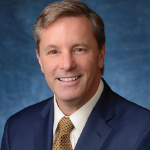Enhance Access & the Relationship

Dr. Frost
The relationship between the hospitalist and the rheumatologist, like any relationship, can be enhanced through better and more purposeful communication, which starts with talking to each other. What does the rheumatologist want the hospitalist to know about rheumatologic conditions and their management, and when would the rheumatologist like to be called? What types of conditions or clinical questions should make a consult standard operating procedure?
Other communication methods with hospitalists and other inpatient physicians could help optimize the consultation process, Dr. Gross says. Because notes in the electronic medical record or faxes can take time to read and may fail to communicate a subtle sense of urgency, sometimes email or instant messaging (with secured encryption) can be more efficient and effective.
A phone call may be possible when a visit to the hospital isn’t, especially if the rheumatologist isn’t available until the end of the day. The rheumatologist could provide education for hospitalists, perhaps through brown-bag lunch presentations. Could one member of the hospitalist group volunteer to seek further training on behalf of the group? Is there a larger role for physician assistants and nurse practitioners to help with communication?
If the two groups are part of the same health system with a shared electronic medical record at the institutional level, could that record be leveraged for timely alerts and notifications? If the hospital doesn’t have access to a rheumatologist, does the sicker patient get transferred to an academic medical center? And can that process be improved?
Finally, telemedicine, including remote video access, may also supplement the consultation experience when in-person visits are hard to come by. Much of the rheumatologic assessment demands careful hands-on examinations, but some rashes, for example, could be diagnosed remotely on video. However, sources say this approach has not been widely implemented yet among rheumatologists.
“Everyone has their own style and approach to consultation,” Dr. Gensler concludes. “At the end of the day, we all have the same common imperatives, which should revolve around the patient. If we can keep the patient at the center of our relationship and focus on how to care for that patient in the best possible way, we will learn how to communicate better with each other. The consultative relationship can become a living, breathing process.”
Larry Beresford is a medical journalist in Oakland, Calif.
References
